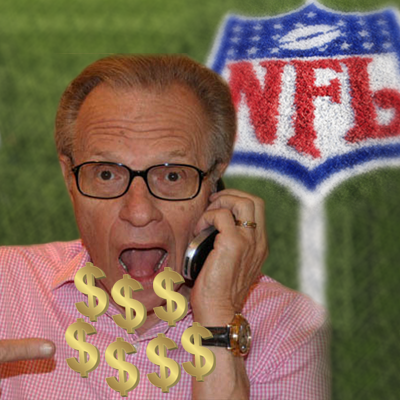 The NFL season is days away from kick-off and fantasy leagues from all over the country are likewise gearing up for a season’s worth go torment, jubilation, and everything else in between.
The NFL season is days away from kick-off and fantasy leagues from all over the country are likewise gearing up for a season’s worth go torment, jubilation, and everything else in between.
That’s the beautiful part about fantasy: literally anybody can put on their own GM hat, build a team from scratch and proceed to dominate your opponents throughout the season. A lot of leagues even have higher stakes involved, at least more than just pride and bragging rights. With the explosion of fantasy football, league wagers have also trended up in recent years, so much so that a league without any kind of bet involved feels completely outdated.
It’s that play-for-cash element to a fantasy league that has turned it into a phenomenon, But it could get some people in trouble, especially in states where betting on fantasy football falls under the definition of “prohibited gambling”.
Such a conundrum lies over confusion between state laws and federal laws, with the former in most cases having stricter regulations than the latter. When it comes to fantasy agreements, some states, specifically those called “chance states”, prohibit or limit the legality of a player getting paid if a game involves an entry fee or prize, or if the outcome of the game relies on an element of chance. Notwithstanding the widely held belief that fantasy football is more of a game of skill (managing players and determining to play them in a particular week is something that takes hours upon hours of analysis) than it is chance.
Marc Edelman, a law professor at City University of New York, Baruch College, Zicklin School of Business, enumerated some of the chance states to FoxNews.com, which he says includes Arizona, Iowa, Louisiana, Montana and Vermont, among others.
But here’s the catch: the laws of these states when it comes to gambling on fantasy football is in contrast with the federal law that regulates online gambling – the Unlawful Internet Gambling Enforcement Act of 2006 – which basically protects fantasy football leagues from those it deemed as illegal gambling. The only caveat is that those who win their leagues have to report their financial winnings to the IRS, something that nobody probably does anyway.
Some states, though, are very clear on their apparent disdain for fantasy leagues. Florida, in particular, stands out as one state that has technically banned any sort of betting on fantasy football leagues and anyone who is caught doing so can be slapped with a misdemeanor. Florida’s the best, isn’t it?
With all these murkiness and confusion surrounding the legalities of betting on fantasy football leagues on different states, people are hardly worried about getting caught receiving money at the end of the season, in large part because a lot of these high-stakes leagues happen among people in close circles. Be it family members, cousins, friends, or officemates, members of these kinds of leagues are less likely to report to authorities that they’re part of a fantasy league that rewards winners with payouts at the end of the year.
Yahoo! Sports and CBS Sports even offer play-for-cash games and there seems to be little attempt by states having a tight leash on these games from banning any of its residents to play in these leagues.
All of this points to treading on waters you don’t even know is hot or cold. So when you decide to enter a play-for-cash fantasy league, do so at your own risk, even with “risk” being defined in this case as something that’s completely vague and valid to interpretation.
